Staff Profiles
Prof. Sajid Mubashir Sheikh
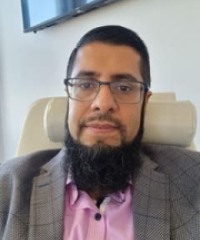
Faculty of Engineering and Technology
Electrical Engineering
Associate Professor and Head of Department
Location: 248/106Phone: 3554226, 72619310
Email Prof. Sajid Mubashir Sheikh
PhD in Electrical Engineering from University of Stellenbosch (South Africa)
MSc in Electronic Systems Engineering from the University of Botswana
BEng in Electrical and Electronic from the University of Botswana
CCNA 1, 2, 3 and 4 Instructor qualification Courses from UB FET Cisco Academy
Prof. Sajid M. Sheikh is an academic, researcher and consultant. He is currently an Associate Professor and the Head of Department in the Department of Electrical Engineering, Faculty of Engineering and Technology, University of Botswana (UB) since May 2024. Prof Sajid M. Sheikh holds qualifications of PhD in Electrical Engineering from University of Stellenbosch, MSc in Electronic Systems Engineering from the University of Botswana, BEng in Electrical and Electronic from the University of Botswana, CCNA 1, 2, 3 and 4 Instructor qualification Courses from UB-FET Cisco Academy, IT Essentials Instructor qualification Course from Sci-Bono ICT Academy, Johannesburg and IT Essentials Instructor Training Qualification from the Networking Academy Instructor Trainer Cisco Systems, South Africa. He also holds professional memberships of IEEE as a Senior Member and Botswana Institute of Engineers (BIE) as a member. He is a registered Professional Engineer (PrEng) with Engineering Registration Board (ERB) (Botswana) in the discipline of Electrical and Electronic Engineering. He is author of many international journal papers, international peer reviewed conference papers and book chapters in the area of Internet of Things innovation product prototype designs; wireless mesh network protocol design for bandwidth constraint networks; and Web radio. He has been / is the reviewer of many international conferences and Journals.
1. Microprocessor Based Systems
2. Computer Architecture and Design
3. Computer Networks
4. Optical and Broadband Communications
5. Digital Electronics
6. Computer Programming
•Scheduling Protocols
•Wireless Mesh Networks
•Internet of Things Systems Development
•Sensor Networks
•Robotics
•Artificial Intelligence and Machine Learning
•Scheduling and Routing Protocols
•Wireless Mesh Networks
•Internet of Things Systems Development
•Sensor Networks
•Robotics
•Artificial Intelligence and Machine Learning
- Nadhir Ben Halima, Sajid M. Sheikh, “Detection Enhancement for RFID systems”, International Journal of Sensor Networks, Inderscience Publishers, August 2024, DOI: 10.1504/IJSNET.2024.141612
- Njovana MT, Kgwadi M, Sheikh S. M., “Characterisation of low-cost stretchable strain sensors for wearable devices. Modern Electronic Materials” 10(1): 37–49, https://doi.org/10.3897/j.moem.10.1.121618, July 2024
- Nadhir Ben Halima, Sajid M. Sheikh, “Throughput Enhancement of RIS and STARRIS for 6G systems”, International Journal of Ad-Hoc and Ubiquitous Computing, April 2024, https://doi.org/10.1504/IJAHUC.2024.140438
- Sajid M. Sheikh, H. A. Engelbrecht, and R. Wolhuter, “A Comparative Study on Improving Quality of Service in Networks Carrying Multi-Service Level Data over Resource-Limited Multi-Hop Wireless Networks,” J. Commun., vol. 12, no. 10, October 2017
- Sajid M. Sheikh, R. Wolhuter, H. A. Engelbrecht, “A Model for Analyzing the Performance of Wireless Multi-Hop Networks using a Contention-Based CSMA/CA Strategy”, KSII Transactions on Internet and Information Systems, Seoul, South Korea, April 2017, eISSN: 1976-7277
Dr. Jemal Zeberga Shifa
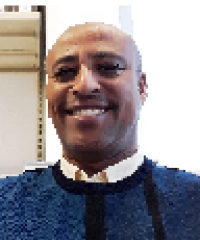
Faculty of Medicine
Surgery
Senior Lecturer
Location: Sir Ketumile Masire teaching hospital , F2038Phone: +2673555346
Email Dr. Jemal Zeberga Shifa
I got my first medical doctor of medicine degree in 1994 from Addis Ababa university medical faculty and my second degree as eye specialist from the same university in 2007
I was born in Ethiopia in a small village called Mechara in 1971 . I completed my elementary school in Mechara . I joined and finished my high school from Gelemso secondary school .
After i passed my high school exam i joined Addis ababa university . I am married and father of three children
SOM 507
SOM 307
Family medicine Residents
-Child hood blindness
-Retinopathy of Prematurity in Botswana its prevalence, risk factors and role of Telemedicine in screening and treatment .
-Rapid assessment of avoidable blindness in Botswana , Published in WHO data base 2015
-Presenting Sign of Retinoblastoma in teaching hospital , Ethiopia , Published in Pan african medical journal ,2017
-A case of Macular hole in a young HIV positive patient , 2019 , Published in Pan American Journal of Ophtalmology
Mrs. Bukhanana Sianang

Mrs. Busisiwe Elizabeth Sianga

Institutional Planning
Deputy Director
Location: 132Phone: 3552578
Email Mrs. Busisiwe Elizabeth Sianga
Prof. Kwenga Festus Sichilongo
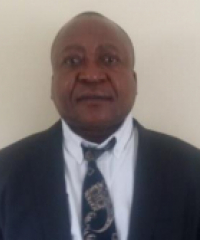
Faculty of Science
Chemistry
Associate Professor/Mass Spectrometer Senior Scientist
Location: Block 246 Office S127Phone: +267 355 4916
Email Prof. Kwenga Festus Sichilongo
PhD Separation Science and Mass Spectrometry, Mississippi State University (USA); MSc Analytical Chemistry and Instrumentation, Loughborough University of Technology (UK); BSc Chemistry, University of Zambia (Zambia)
Fundamentals/applications of separation science and mass spectrometry have been my focus since I left graduate school in 1999. I have great passion to explore the behavior of ions from creation to detection for different types of analytes of interest in a vast array of mass analyzers. I envisage widening the scope of fundamentals by incorporating other instrumental methods of analysis such as nuclear magnetic resonance spectroscopy (NMR), Fourier transform infra-red (FT-IR) including ab initio calculations to aid in deciphering many mysteries about the behavior of gas phase ions and applying the outcomes to real life problems. The curiosity in ion motion drives applications. Thus, I have great interest in applications in environmental, food including metabolomics, clinical, natural products etc. Recently, We have been developing methods for the determination of antiretroviral and other drugs in human fluids such as plasma for clinical analysis applications. We recently completed two collaborative projects developing methods for the determination of efavirenz in human plasma for therapeutic drug monitoring and lumefantrine in dry blood spots malaria time modulated samples from Botswana initially for TDM. Collaboratively, we are also mining for biomarkers for different diseases in order to develop simple point of care testing devices for diagnostic purposes. We target non-invasive human samples such as saliva, urine and stool.
(1) Mass Spectrometry (2) Separation Science (3) Electroanalytical Chemistry (4) Chemometrics (5) Applicatons of Analytical Chemistry (6) Instrumental Methods of Analysis
Fundamental and applications of separation science and mass spectrometry . Fundamentals i.e. from ion creation to detection and model development for retention time prediction for chromatography. Applications of separation science and mass spectrometry to food, environmental, clinical and other matrices of human interest.
(1) Mass spectrometry (2) Separation science i.e. GC-MS and LC-MS (3) Applications to food, environmental, clinical and other matrices of human interest.
1) Sichilongo, Kwenga; Padiso, Tumelo; Turner, Queen (2020) “AMDIS-Metab R data manipulation for the geographical and floral differentiation of selected honeys from Zambia and Botswana based on volatile chemical compositions using SPME-GC-MS” European Food Research and Technology, 246:1679–1690 DOI: 10.1007/s00217-020-03523-x
2) Sichilongo, Kwenga; Kolanyane, Prince (2020) “Chloride adduct tandem mass spectrometry for the quantification of thiamphenicol and florfenicol in bovine muscle” Journal of Food Composition and Analysis, 87: Article Number: 103428 DOI: 10.1016/j.jfca.2020.103428
3)Kwenga Sichilongo, Elliott Mwando Jr., Enoch Sepako, Amos Massele (2018) “Comparison of efficiencies of selected sample extraction techniques for the analysis of selected antiretroviral drugs in human plasma using LC-MS” Journal of Pharmacological and Toxicological Methods, 89, 1-8. DOI: 10.1016/j.vascn.2017.10.001
Ms. Julia Siele

Mr. Onalenna Silas

Dr. Nthalivi Silo
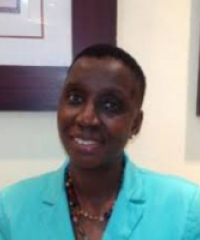
Faculty of Education
Primary Education
Senior Lecturer
Location: 244A Office 23Phone: 3552993
Email Dr. Nthalivi Silo
|
Doctor of Philosophy – Environmental and Sustainability Education. |
|
Doctor of Philosophy – Environmental and Sustainability Education. |
Nthalivi Silo is a Senior Lecturer in Environmental Sustainability Education in the Faculty of Education, University of Botswana. Her current duties include teaching, research, community engagement, and supervision of undergraduate, masters and doctoral students in environmental sustainability education and early childhood education.
Nthalivi Silo is the Botswana reference group member in the UNESCO program ―Sustainability Starts with Teachers‖ (SST), which is an on-going programme since 2017 that is engaged in the capacity building for teacher educators from teacher education institutions and Technical and Vocational Education Training institutions (TVETs) in the SADC countries. She coordinates and co-facilitates capacity development workshops and training, in partnership with UNESCO (regional office), Southern African Regional Universities Association (SARUA), Rhodes University and the Swedish International Centre of Education for Sustainable Development (SWEDESD), UNESCO NatCom (Botswana) and the Ministry of Tertiary Education, Research, Science and Technology. She was the Botswana council member in the Southern African Association of Environmental Education (EEASA) Council from 2015 to 2019 and contributed to the preparation of the annual EEASA conferences. She was the editor of the EEASA Bulletin from 2015 to 2019 where she compiled articles for publication in the bulletin and edited bulletin issues.
Dr N. Silo teaches undergraduate and masters students environmental sustainability education courses and supervises doctoral students in environmental sustainability education and early childhood education research.
Her research interest is in curriculum issues in environmental sustainability education and development of civic agency and competences in environmental and sustainability related issues in teacher education. She has reviewed several papers for the Southern African Journal of Environmental Education and the journal, Studies in Continuing Education, and has also externally examined various Masters and PhD thesis from universities in South Africa.
Dr Silo has supervised several undergraduate and postgraduate research focusing on Environmental Sustainability Education and Early Childhood Education.
1. Silo, N. and Ketlhoilwe, M. J. (2020). Environmental Sustainability Education: Driving towards achieving SDG 4 through teacher education, in Keitumetse, S. O., Hens, L., Norris, D. (Eds.) Sustainability in Developing Countries - Case Studies from Botswana’s journey towards 2030 Agenda. Springer
2. Silo, N. & Sinvula, S. (2018). Resilience and coping strategies against socio-ecological risks: A case of livelihoods in a Botswana rural community, Journal of Rural and Community Development
13(4).
3. Ketlhoilwe, M. J. & Silo, N. (2016). Change Project-based learning in teacher education in Botswana, Southern African Journal of Environmental Education. Vol 32.
4. Silo, N. (2013). Dialogue—Missing in Action Competence: A Cultural Historical Activity Theory Approach in a Botswana School. The Journal of Environmental Education Vol 44 (3)
5. Silo, N. (2011) Children’s Participation in Waste Management Activities as a Place-Based Approach to Environmental Education. CY&E, 21(1)
Ms. Kgomotso Gaofenngwe Sima
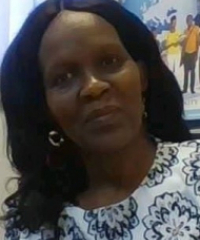
Information Technology
Acting Director
Location: Block 247/156Phone: 267-3555233
Email Ms. Kgomotso Gaofenngwe Sima
Msc Computer Science
MBA
Bachelor of Science Applied Computer Science
Diploma in Real Estate
23 years of experience in IT field, 17 years of which have been spent at management level. Experienced in management, implementation and maintenance of both small and large scale applications/systems. Technically skilled in database management and security, server administration, systems administration, development, software testing, systems auditing, tender document preparation and leading the tender evaluation process. Played a vital role during the ERP project implementation at University of Botswana in the year 2012, as the leader of data migration team. Recently spearheaded revamping of the University of Botswana Website, and played important role during the COVID-19 era to ensure implementation of remote teaching and learning. Posses strong skills in planning, critical thinking, time management, supervisory, leadership, strategic management, problem solving, communication, interpersonal skills and emotional intelligence skills.
assisted in teaching Computer skills at University of Botswana - 2 years
Mrs. Sethunya R. Simela

Faculty of Science
Environmental Science
Lecturer
Location: Block 247, Office 413Phone: 3554128
Email Mrs. Sethunya R. Simela
M.S. (Geography) Florida State University, Tallahassee, Florida, USA.
Bachelor of Arts (Humanities), University of Botswana
Diploma in Secondary Education, Humanities (Geography & English), University of Botswana
Sethunya Simela is a Human Geographer, trained in Population and Health/Medical Geography. She joined the University of Botswana as a Staff Development Fellow and later studied for a Masters degree in Geography at the Florida State University in Tallahassee, Florida, USA. After this training she came back to teach Human Environmental Science courses here at the University of Botswana.She has taught not only foundation human environment courses, namely Elements of Human Geography but also Health/Medical Geography and Population Geography. Other courses that she has been instructor of include Quantitative Techniques courses, specifically Techniques in Population Geography.
She has recently developed interest in Environmental Assessments, having joined a team of supervisors of graduate students whose interests are heavily along those areas.
Teaching human Environment and Quantitative Techniques in Geography courses:
Undergraduate:
Environment and Disease
Health Care Geography
Concepts and Principles of Population Geography
Quantitative Techniques in Environmental Science
Quantitative Techniques in Population Geography
Advanced Techniques in Population Geography
Research Essay
Graduate:
ENS 638: Population, Environment and Development
Health/Medical and population geography: Areas of specialization include:
HIV/AIDS Home-Based Caregiving Space
Health service utilization and accessibility and in particular HIV/AIDS related health care services with a focus on vulnerable populations;
Indigenous populations and health
climate change and sustainable livelihoods
Environmental Assesment
Investigating the Participatory Planning and EIA Processes of the Lobatse Sports Complex and BMC sewage ponds: The Case of Maokaneng ward Locality in Lobatse,Botswana.
Assessing the adequacy of EIA reports in prediction and mitigation of Fuel Stations associated environmental impacts: A case of Fuel stations in Ramotswa,Botswana.
Sustainable Livelihoods
The Impact of Deforestation of colophospermum mopane on Mopane Worm and The Rural Livelihoods in Mosu Village,Bots
Maphanyane, J. G., Mapeo, R. B., & Simela, S. (August 2017). Emerging Approaches toData Management for a New Geospatial Science Research: The Essences and Methodologies of Data Matter Perspective. In J. G. Maphanyane, R. B. Mapeo, M. O. Akinola., J. G. Maphanyane, R. B. Mapeo, & M. O. Akinola. (Eds.), Handbook of Research on Geospatial Science and Technologies (pp. 304 - 336). Hershey, Pennsylvania , USA: IGI Global